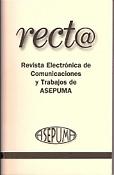Revisiting the Expectancy/Disconfirmation Paradigm for Small Questionaries: The Cultural/Heritage Tourism Case
Palabras clave:
Continuity correction, 2x2 contingency tables, attributes, assimilation theory, satisfaction, cultural/heritage tourismResumen
Despite the emergence of new strategies, models of expectancy/disconfirmation are still very popular in tourist research. This is why they are revisited in three aspects: (i) unlike usual research, and in order to correct subjectivism, tourists’ overall satisfaction is measured through a weighted mean of satisfaction with individual attributes; (ii) an alternative to these models is given for simple questionnaires where tourists only have to answer if some tourist services have lived up to their expectations or in what extent they have been exceeded or fallen short of such expectations; and (iii) the Assimilation Theory is revisited in terms of positive association between expectancy and slight disconfirmation (what we call the positive version of the Assimilation Theory). A chi-square statistic including an asymmetric continuity correction is provided to test the independence hypothesis. This article relies on the information provided by 1,500 respondents who were given a small questionnaire specially designed to measure tourist satisfaction in the emblematic part of Toledo, Spain (a UNESCO World Heritage City).
Descargas
Publicación Facts
Perfil de revisores N/D
Información adicional autores
Indexado: {$indexList}
-
Indexado en
- Sociedad Académica/Grupo
- N/D
- Editora:
- UMA Editorial. Universidad de Málaga
Descargas
Publicado
Cómo citar
Número
Sección
Licencia

Esta obra está bajo una licencia internacional Creative Commons Atribución-NoComercial 4.0.





